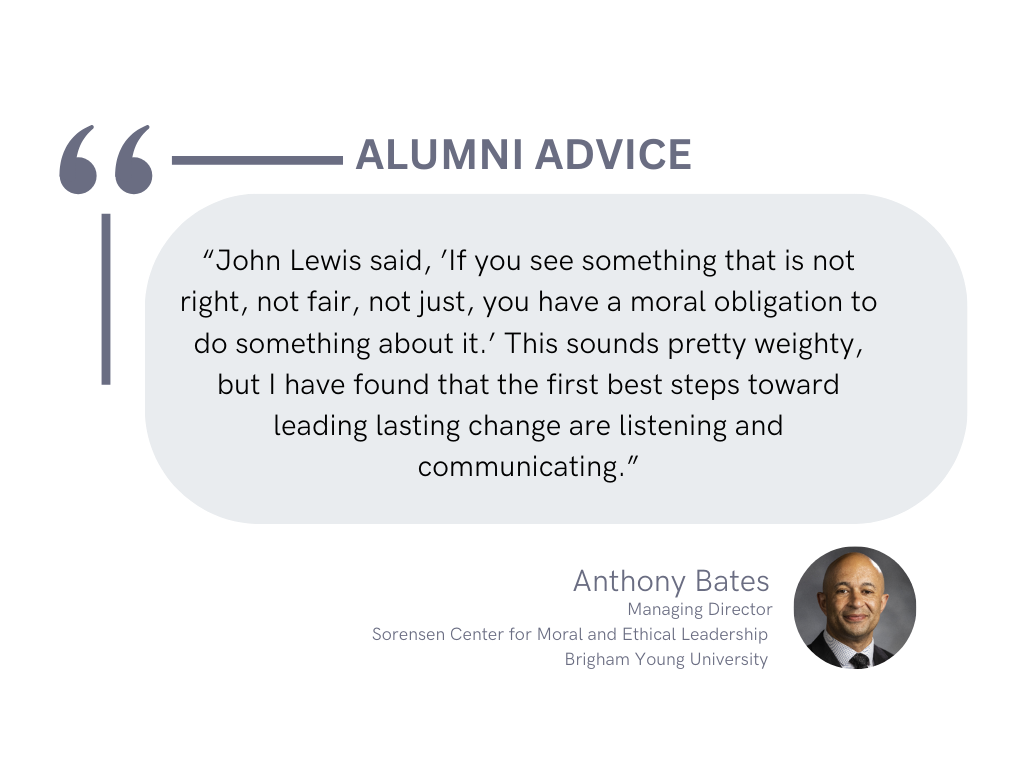Empower Why communication matters more than ever in a digital world
Contents
Be a top hire
With the emergence of artificial intelligence (AI) in an increasingly digital economy, students might think that writing and communicating are no longer skills essential to gain employment.
Not so fast . . .

In its study on the impact of AI, McKinsey studied 18,000 people in 15 countries to determine what employees should focus on to operate and be resilient and adaptable in the AI economy. Not surprisingly, of the cognitive capabilities McKinsey’s report identifies, an entire quadrant focuses on communication and critical thinking, which are focal points in this textbook.
Employers remain eager to hire good writers because clear writing demonstrates clear thinking.
In this April 2023 Inc. Magazine article entitled “Why Learning to Write Well Is Still Important in the Age of AI,” contributing author Jessica Stillman writes that young students like you might think you don’t have to spend time learning to write. She quickly dispels this myth, emphasizing that writing makes you smarter. Her article quotes venture capitalist Morgan Housel, who argues that
“everyone—even those with not a shred of literary ambition—should perfect their writing. Not to persuade others, but to make themselves smarter.”
So AI does not get you off the hook. Become a good communicator; employers are still looking for that differentiating skill and have become more willing to test these skills in an open-ended based-scenario assessment during the interview process.
The figure below, using NACE data, illustrates that communication skills—tied with technical skills—remain in the top 5 attributes employers seek on a candidate’s resume in the 2023 job market.

As employers continue to seek good communicators in an age of exploding AI, consider how valuable you will be if you apply the principles you learn from this book.

Become a Leader
After your communication skills help you land a job, they'll then propel you into leadership as you use your communication skills to learn from people, coordinate their efforts, share knowledge, communicate high standards, and inspire.
In their book The Extraordinary Leader, researchers Zenger and Folkman report that communicating “powerfully and prolifically” enhances other leadership competencies, including even seemingly unrelated ones like technical competence or strategic development. Powerful communication is a skill—and a habit—that enhances other leadership skills.
Formal education and on-the-job training help you deepen your technical knowledge in your chosen field. However, if you never learn to pitch a new idea to your team, persuade a stakeholder, or clarify data for a client, you may not achieve your full potential.
Hone your communication skills to contribute workplace solutions and enhance your career.
As Dr. Susan Madsen said, “Leaders are not just born. Sure, some people are born with strong competencies and strengths for leading in certain situations, but leadership can also be developed. That means everyone can strengthen their skills and abilities to lead and influence.”

Build Relationships
Human connection is valuable to health, safety, peace, and success. People spend the majority of their waking time in activities that involve connecting—and communicating—with other people.
Professional communication includes understanding different points of view, delivering bad news clearly but diplomatically, maintaining trust through ethical and honest messaging, and using language to encourage and motivate a team.
Your study of professional communication will not only help you increase your workplace skills and employable value but also help you live well, understand others, strengthen your communities, advocate for important causes, build relationships, and accomplish your goals.
...

You can use these skills in every area of your life . . .
Relationships: You look upset. Want to talk about it?
Neighborhood: Empty-lot cleanup party this Saturday at 10 a.m. Bring a rake. Donuts provided!
Colleagues: Does everyone understand our new strategic direction?
City: The new bond is an essential tool for improving our transit system for the following three reasons.

You can use these skills in every area of your life . . .
Relationships: You look upset. Want to talk about it?
Neighborhood: Empty-lot cleanup party this Saturday at 10 a.m. Bring a rake. Donuts provided!
Colleagues: Does everyone understand our new strategic direction?
City: The new bond is an essential tool for improving our transit system for the following three reasons.

In Conclusion
By practicing concise and direct communication, you’ll become more effective on the job, more employable, more influential in your organization, and more connected to others.
Learn More
Bold citations are referenced in the chapter text.
 Articles
Articles
Bernoff, Josh. “Bad Writing Is Destroying Your Company’s Productivity.” Harvard Business Review, September 6, 2016. Accessed August 2021.
Burning Glass Technologies. “The Human Factor” [PDF file]. November 2015. Accessed August 2022.
Dondi, Marco, Julia Klier, Frédéric Panier, and Jörg Schubert. “Defining the Skills Citizens Will Need in the Future World of Work.” McKinsey & Company. June 25, 2021. Accessed August 30, 2023.
Harris, Lynda. “The Cost of Bad Writing.” NA Business + Management 29, no. 8 (2015): 15. Accessed August 2021.
Housel, Morgan. “Why Everyone Should Write.” Collab Fund. August 9, 2017. Accessed August 30, 2023.
Jean-Etienne, Joullié, et al. “The Language of Power and Authority in Leadership.” Leadership Quarterly 32, no. 4 (2021).
Morgan, Blake. “Why Every Employee at Your Company Should Have Communications Training.” Forbes, January 24, 2018. Accessed August 2021.
NACE. “Key Attributes Employers Want to See on Students’ Resumes.” January 13, 2020. Accessed August 2021.
Plain Language: Improving Communications from the Federal Government to the Public. May 2011. Accessed August 2021.
Stillman, Jessica. “Why Learning to Write Well Is Still Important in the Age of A.I.” Inc.com. April 10, 2023. Accessed August 30, 2023.
Wiens, Kyle. “I Won’t Hire People Who Use Poor Grammar. Here’s Why.” Harvard Business Review, July 20, 2012. Accessed August 2021.
 Books
Books
Garber, Peter R. 50 Communications Activities, Icebreakers, and Exercises. Amherst: HRD Press, 2008. PDF e-book. Accessed August 2021.
Hertz, Noreena. 2021. The Lonely Century: How to Restore Human Connection in a World That’s Pulling Apart. New York: Currency.
Strunk, William, and E. B. White. The Elements of Style. New York: Longman, 2000.
Zenger, John, and Joseph Folkman. The Extraordinary Leader. New York: McGraw-Hill Education, 2009.
 Websites
Websites
sec.gov. "2018 Form 10-K for Infor, Inc." Accessed May 2022.
